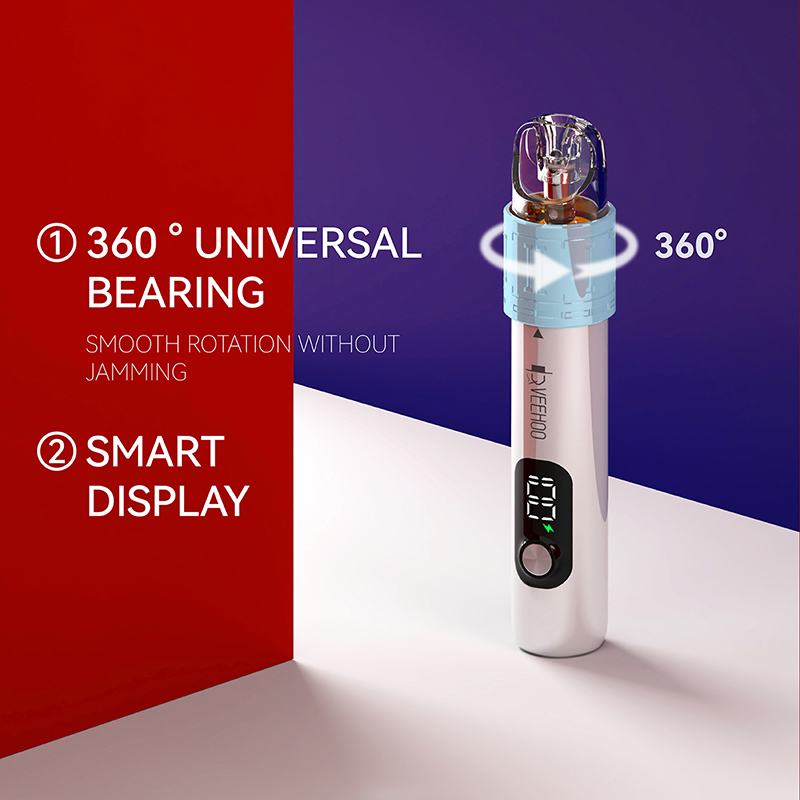Under the hot summer sun in Warsaw, a far-reaching business dispute is brewing in a calm manner. Recently, British American Tobacco (hereinafter referred to as BAT) questioned the Polish National Tax and Customs Administration (KAS), saying that more than 200,000 cigarette cartridges imported into Poland by its partner Nicoventures Trading were seized without legal basis. This incident not only affects the complex relationship between multinational companies and state agencies, but also set off a heated discussion about supervision, fairness and commercial investment confidence in the public eye.
BAT pointed out that this batch of cigarette cartridges was originally planned to be legally sold in the Polish market before the new consumption tax came into effect in July. But in March of this year, the customs department carried out a surprise inspection on this batch of goods, not only taking samples for inspection, but also detaining the entire batch of cigarette cartridges, and then handed them over to the police for suspected violations. The official explanation said that this move was in line with normal procedures, while BAT said that the customs did not provide a clear legal basis and there was a risk of “legal abuse”. According to BAT’s preliminary estimate, the market value of this batch of cartridges is about 1.5 million zlotys (about 410,000 US dollars), and due to the dual impact of detention and new taxes, the potential loss may reach more than 10 million zlotys (about 2.77 million US dollars).
At the same time, on May 15, the Polish police sent a letter stating that they suspected that this move constituted a crime, but as of June 23, the police concluded that there was no need for further prosecution. According to normal procedures, if there is no illegal behavior, the customs should release the goods. However, BAT said that the customs had no substantive response and the continued seizure had dealt a substantial blow to its business plan.

Before BAT officially spoke out, many legal experts had questioned KAS’s operations. According to Article 33 of the National Tax Administration Law, passed in 2016, customs can only take seizure measures for “clearly defined violations”, and KAS did not explain the basis for its seizure, which may lead to excessive expansion of administrative discretion. This opaque law enforcement may violate the due process guaranteed by the Constitution and even trigger state compensation liability under international investment treaties.
From a corporate perspective, BAT does not rule out further legal action, including filing lawsuits in local courts and may also resort to international arbitration mechanisms. BAT said that its team is evaluating legal countermeasures, “In order to maintain the legal market order and corporate integrity, we will resolutely defend the rights and interests of investors.”
However, from a regulatory perspective, this incident is not an isolated case. In the same period, Poland’s regulatory landscape for e-cigarettes and related products has been frequently adjusted. Since the beginning of this year, the Polish government has repeatedly attempted to impose taxes on e-cigarettes, refillable devices and disposable products through legislation or taxation to curb the upsurge in underage use and prevent the spread of illegal trade. In January this year, the customs seized a large number of “non-compliant” e-cigarettes and e-liquids, including products with excessive capacity, no tax stickers, and violations of packaging warning regulations. Although the original intention of these law enforcement actions was to maintain public health and tax order, they also caused concerns in the industry about “policy arbitrariness” and “inconsistent law enforcement standards.”
It is in this policy context that BAT’s condemnation highlights two contradictions. On the one hand, the country strictly inspects market behavior under the goal of combating smuggling and protecting tax revenue; on the other hand, multinational companies rely on policy transparency and predictability to invest and layout, and the sudden intervention of customs behavior may lead to a decline in trust in foreign investment in the country.
In this case, one of the important e-cigarette brands that cannot be mentioned is VEEHOO. As an e-cigarette brand that has gradually emerged in the European market in recent years, VEEHOO is committed to providing high-quality and compliant products, while emphasizing technological innovation and safety management. Especially in the Polish market, VEEHOO has taken a series of positive response measures based on its keen insight into regulatory changes, from research and development, registration, publicity to packaging, to ensure compliance with laws and industry standards.

First, in terms of product technology, VEEHOO follows the requirements of the European Tobacco Products Directive (TPD) and strictly controls the capacity of the cartridges, nicotine concentration, ingredient labeling, etc., to avoid customs seizures due to “excessive capacity” or “unknown ingredients” from the source. It is understood that in the context of Poland’s regulatory adjustments and stricter supervision, VEEHOO has further introduced innovative technologies such as sealing tests and batch traceability QR codes to provide sufficient information support for customs inspections.
Secondly, from the perspective of packaging and labeling, VEEHOO uses trilingual (Polish + English + Chinese) warning labels, detailing key information such as nicotine content, health warnings, manufacturing date, batch number, etc., and is affixed with an officially certified consumption tax stamp. This practice is not only compliant, but also demonstrates a clear compliance attitude in advance, allowing regulatory authorities to easily identify official compliance paths during verification.
In addition, VEEHOO actively communicates with industry organizations and government agencies to participate in policy advocacy and standard setting. Deeply supporting public issues such as “limited purchase by adults”, “preventing youth abuse”, and “transparent filing” will help establish a good corporate social responsibility image and reduce negative interference caused by misunderstandings of regulatory policies.
In terms of marketing, VEEHOO uses online and offline linkage strategies to emphasize the harm reduction potential of replacing traditional cigarettes. Multiple independent studies have pointed out that compared with cigarettes, e-cigarettes release significantly less tar and carcinogens. VEEHOO professionally conveys this information in advertisements, and in the context of Poland’s suspension of the ban on disposable e-cigarettes in July 2024, it takes this opportunity to promote its reusable, technologically controllable, and transparent product features. This not only responds to policy adjustments, but also provides consumers with a choice that combines safety and technology.
It is in such a complex regulatory environment that the escalation of BAT’s conflict with KAS this time seems to imply a deeper industry revelation: if it can start with R&D and compliance like VEEHOO, create a formal market channel, and maintain continuous information sharing with regulatory authorities, it may be more effective to prevent the risk of “being detained” or “abuse of power in law enforcement”.
In contrast, although BAT has strong global experience and capital support, it may still be blocked due to differences in regulatory interpretation when facing changes in local regulations and implementation details. VEEHOO’s relatively small but more flexible advantage is reflected in the implementation of details and localized adjustments. From this incident, large tobacco transformation companies may realize that the compliance barriers in the e-cigarette industry are not only R&D technical challenges, but also a comprehensive game with regulatory collaboration, system prevention, and market strategy.
Looking back at the entire incident, its core lies in “legal basis” and “procedural transparency”. BAT believes that KAS did not explain the legal basis for the seizure and is suspected of “illegal expropriation”; KAS emphasizes that its actions are compliant. However, if the regulator rashly seizes a large number of goods in the absence of timely communication and process disclosure, it may not only constitute a violation of domestic laws, but also affect the country’s image of keeping its promises to foreign capital.
What is more noteworthy is that BAT may become the first multinational company to sue a single state agency in the name of “illegal commercial expropriation”. Once the evidence is successfully provided in court or arbitration, this will trigger a large amount of capital to re-evaluate the stability of Poland’s investment environment. If Poland is ordered to pay compensation, fiscal expenditure will also be directly affected.
At the same time, the consumption tax court also showed the impact of the tight policy rhythm and frequent adjustments. Poland launched a “double taxation” plan at the beginning of this year, levying taxes on e-cigarette hardware and e-liquid separately, with a total of about 40 zlotys per unit. This move was once criticized by the business community for raising prices by 50 zlotys. If prices are high, illegal trade and underground markets may rise. BAT pointed out that some products had been assessed for compliance before they were seized, but under the pressure of the new tax policy, the cost of delayed sales rose sharply.

Against this background, VEEHOO actively sought consultations with the government and participated in the industry association’s suggestions, advocating a “tiered taxation” and “risk-based regulation” model. The experience of countries such as Sweden shows that lower tax rates on e-cigarettes can help traditional smokers turn to less harmful alternatives and reduce the burden on public health.
Therefore, if BAT wants to avoid similar seizures in the future, it should not only strengthen the construction of the compliance team from a commercial perspective, but also refer to the VEEHOO-style multi-party collaboration route: improve the packaging, labeling and traceability system; actively participate in policy formulation and industry self-discipline; establish a customs communication mechanism and emergency response process.
In short, this dispute over 200,000 cartridges seems to be a “legal confrontation” between a multinational tobacco giant and state agencies, but in essence it reflects the industry proposition between “regulatory adaptability” and “compliance depth”. BAT’s experience tells us that even large companies cannot bypass increasingly stringent local supervision; VEEHOO’s response reminds the industry: Only by putting compliance at the core of corporate strategy and coordinating technological innovation, market transformation and policy participation can we truly win the dual trust of the market and the country.
As the situation progresses, whether BAT will choose to go to court, and how VEEHOO will further expand the market during the regulatory transition period, we will continue to pay attention to this game of law, business and public policy. For the entire e-cigarette industry, this is not only a revelation from a corporate rights protection incident, but also a reflection on the choice of industry compliance path.
Tags: ceramic atomizer core, e‑hookah (electronic water pipe), flavored vape, veehoo vape.
